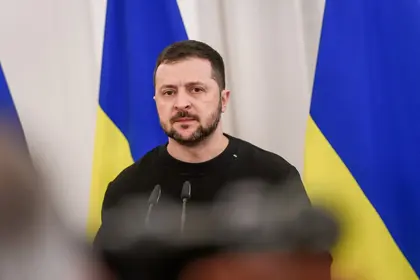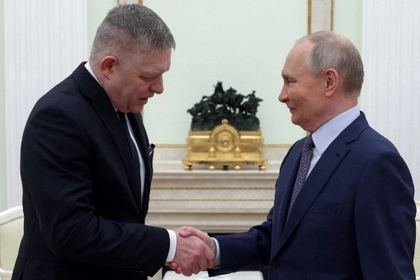During a two-day working tour of the Baltic nations, President Volodymyr Zelensky addressed local media in a press conference outlining current opportunities and challenges facing Ukraine in wartime, the strength of international partnerships and the urgent need for more military hardware to fend off Russian attacks.
Here are ten key takeaways.
JOIN US ON TELEGRAM
Follow our coverage of the war on the @Kyivpost_official.
- The importance of reform
The Ukrainian president described how implementing reform is not simply a task “that comes from somewhere above… from the International Monetary Fund or the EU.” He emphasized the longitudinal nature of the process and that “the development of a person, a state, a society… is impossible without reform.”
- Ukraine’s fight against corruption
Zelensky acknowledged public demand for cleaning up Ukraine’s record on corruption, but appeared to admit that progress is slow going.
“No one is going to forgive anyone or anything. This is also a challenge – to clean up everything as much as possible [and] to get away from bureaucracy. Courts also need to be reset. Such processes have begun in Ukraine, but so far there are not many of them,” he conceded.
- Cyber security
The president explained how, even amidst full-scale war, his country has shown itself to be at the cutting edge of cyber security.
“At the beginning of the war, our websites were hacked… But we were able to protect and restore it. Today… everything works – the banking system, all state websites and services.”

Washington Insider: US Congressional Hearings on Corruption in Ukraine Are Coming
- Energy autonomy
Zelensky touched on Ukraine’s proactive approach to social infrastructure and energy autonomy during the press conference.
“Schools, universities, hospitals are now autonomous in terms of energy due to the war and due to blackouts. But we understand that there should [also] be energy autonomy of private institutions and businesses, as well as safety for children in terms of air-raid shelters,” he said.
- Defense sector reform
According to the president, 2024 will see partnership efforts focused on securing more productive work and a push towards self-sufficiency in the defense arena to stave off Russian aggression.
“We in Europe – from west to east, from north to south – need much more productive work from the defense sectors of our states,” he argued. “Europe must learn to be self-sufficient in its defense. Russia only understands strength. And we all need that kind of strength in Europe.”
- Reducing bureaucracy
Whilst Ukraine has been a beacon for digitization, Zelensky acknowledged existing high levels of bureaucracy.
“We understand that [state] institutions are bloated, that the Cabinet of Ministers is bloated… It is very difficult to head, in general, such a large ‘machine.’ And today, thanks to digitalization, it is possible to do things easier,” he said.
- Ukraine-NATO Council
Ukraine’s president made the point that the Ukraine-NATO Council is “functioning” and “a good instrument” launched following the July 2023 Vilnius Summit.
“I’ve seen how quickly we can organize partners, meet at the level of defense ministers, at the level of foreign ministers.” Zelensky said with respect to the effectiveness of the format in solving important issues of state.
- Security commitments for Ukraine
Additionally, Zelensky explained that work has begun on building security commitments in accordance with the Joint Declaration adopted by the G7 and Ukraine following the NATO summit in Vilnius.
He said that such commitments include not only the provision of weapons, but also financial, IT and cyber support, and are a step along Ukraine's path to becoming part of the security alliance.
“We have started work on security commitments. It’s not easy, but in the near future I think we will be able to show the public – not only the Ukrainian public – a first draft… I think the assessment will be positive,” the president said.
He added that Kyiv expects “a real step from NATO countries to bring Ukraine closer to the Alliance.”
- US aid for Ukraine
Zelensky revealed that most US aid earmarked for Ukraine currently remains in the US.
"More than 70 percent remains in the United States,” he said. “The people who have helped us know this. Weapons are not free, and US enterprises have received money.”
Zelensky was also asked to comment on a statement made by Republican Governor of Florida Ron DeSantis that US taxpayers' money was going to pensions for Ukrainians.
“You can say that we defend democracy together, and then say ‘we cannot give money to the military because we are a NATO country so cannot support the war’. DeSantis is a young man and he apparently does not understand what it means to support pensioners during the war. When DeSantis is a pensioner and we win this war, I will help him with gratitude because the United States helped our pensioners,” the president said.
- Strengthening Ukraine’s air defenses
Among Ukraine's urgent weapons needs, Zelensky singled out air defense systems.
“I am grateful to all the partners who have given us the opportunity to fight for our lives and survive. This includes the Patriot, Nasams, Iris-T systems and many others that help in any way. But if we are talking about serious missile strikes… 200 strikes on the heads of children, civilians, military… it is impossible to survive here without the Patriot,” Zelensky made clear.
According to the president, if seven Patriot systems had been provided to Ukraine, lives could have been saved in Kharkiv, Kherson and Odesa.
“Is it possible to live with this comfortably? Well, I will say frankly… I do not understand this.”
You can also highlight the text and press Ctrl + Enter






